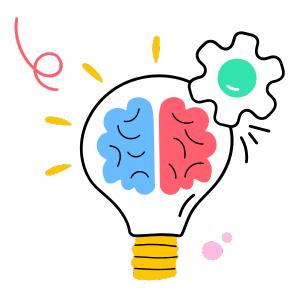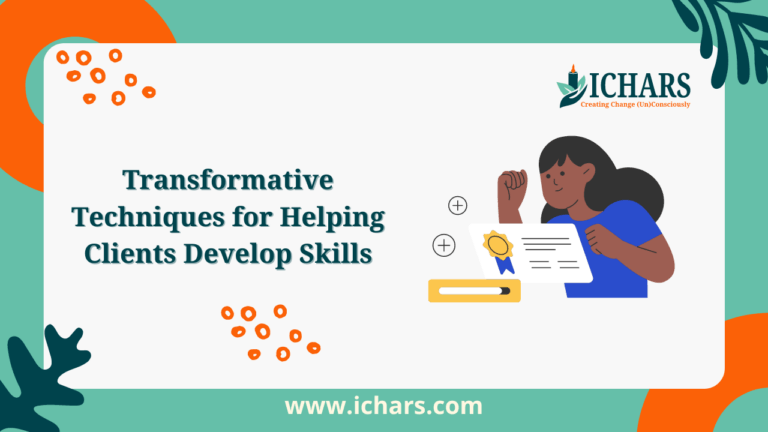Have you ever watched a client’s frustration mount as they struggle to translate their aspirations into actionable skills?
As practitioners, we frequently encounter individuals brimming with the desire for change but grappling with the practical steps to achieve it.
The competency of helping clients develop skills is not just about providing instruction; it’s about inspiring confidence and empowering clients to transform their lives. This article delves into the significance of this essential competency, offering strategies and practical applications to enhance your practice and achieve empowering outcomes.
The Essence of Helping Clients Develop Skills
At its core, this competency equips individuals with the abilities they need to overcome challenges and achieve their aspirations. Mastery in this area transforms the therapeutic relationship from dependency to autonomy, fostering lasting change through skill acquisition. Let’s explore the crucial facets of this competency in depth.

- Skill Assessment: Accurately gauging a client’s current capabilities and identifying areas for growth is the first step. For instance, a client may excel in theoretical knowledge but lack practical application skills.
- Actionable Learning: This involves breaking down complex theories into digestible, actionable steps that clients can easily implement. An example might be using role-play to practice new behaviours.
- Client-Centered Teaching: Tailor your teaching methods to each client’s unique learning style and pace. For example, visual learners may benefit from diagrams, while kinesthetic learners might prefer hands-on activities.
- Empowerment: Encourage clients to take an active role in their learning process, promoting self-efficacy and independence. This can be achieved by setting small, achievable tasks that build confidence.
Enhancing Your Competency in Helping Clients Develop Skills
Developing this competency is a dynamic process that involves continuous learning and application of various techniques. Here are some strategies to enhance this critical skill:
- Educate Yourself on Learning Principles: Understanding adult learning theories, cognitive psychology, and behaviour change can tailor your approach. For instance, using the theory of spaced repetition can help reinforce new skills.
- Adopt Various Teaching Methods: Use demonstrations, role-playing, and guided practice to ensure active engagement. For example, simulate a challenging situation and guide the client through problem-solving steps.
- Set Achievable Goals: Collaborate with clients to set SMART goals. For instance, a goal for a client could be to practice a new communication skill in three real-life scenarios over a week.
- Encourage Reflective Learning: Ask clients to journal their progress and reflect on their experiences. This helps consolidate learning and identify areas for further improvement.
- Feedback and Adjust: Provide regular, constructive feedback and be flexible in your approach. If a client struggles with a technique, explore alternative methods.
- Practice Patience: Recognize that skill development is a gradual process. Celebrate small victories to maintain motivation and reinforce progress.
- Model Skills: Demonstrate skills during sessions, providing a live example. For example, if teaching active listening, model this skill during your interactions with the client.
Practical Application in Your Practice
Effectively applying the competency of helping clients develop skills involves several practical steps:
- Assessment and Planning: Conduct thorough assessments to pinpoint developmental needs and create a tailored skill-building plan. For example, use standardized assessment tools to identify specific skill deficits.
- Skill Demonstration: During sessions, demonstrate skills clearly and provide a model for clients to emulate. For instance, show how to manage anxiety using deep breathing techniques.
- Guided Practice: Engage clients in practicing new skills within the session, offering immediate support and feedback. Role-play scenarios can be particularly effective here.
- Real-world Application: Encourage clients to apply new skills in real-life situations and discuss the outcomes in subsequent sessions.
- Progressive Difficulty: Increase the complexity of skill practice gradually as the client gains confidence. Start with simple tasks and move to more complex challenges.
- Resource Provision: Provide clients with materials or resources, such as worksheets or apps, to support skill practice outside of sessions.
- Accountability and Support: Set up a system of accountability, such as regular check-ins, to encourage continuous skill development.
The Cognitive Hypnotic Edge
The Cognitive Hypnotic Coaching and Psychotherapy offers a unique blend of evidence-based methodologies with practical strategies to enhance the competency of helping clients develop skills. Here’s how CHCP can bolster your practice:

- Integrative Models: Combining cognitive psychology, behavioural psychology, hypnotherapy, and more, CHCP addresses learning and change comprehensively. This integrative approach helps in creating customized learning experiences.
- Subconscious Alignment: Aligning conscious goals with subconscious drivers can help overcome deep-seated barriers to skill acquisition. Techniques such as hypnotic suggestion facilitate faster internalization of new skills.
- Behavioural Flexibility: Training in NLP promotes behavioural flexibility, essential for adapting new skills to various contexts.
- Hypnotic Suggestion: Hypnotic techniques enhance receptiveness to change, making it easier for clients to internalize new skills.
- Customized Learning Experiences: CHCP emphasizes tailoring learning experiences to each client’s personal style and pace, ensuring maximum engagement and retention.
Success stories from CHCP graduates highlight significant improvements in clients’ skill development post-training, underscoring the effectiveness of these advanced techniques.
Conclusion
Equipping clients with transformative skills is vital for any effective coaching or therapeutic practice. Mastering this competency leads to lasting, positive changes in clients’ lives. Continuously refining your approach to meet each client’s needs ensures meaningful outcomes.
The Cognitive Hypnotic Coaching Diploma offers coaches, trainers, and HR professionals advanced techniques to enhance skill development. For psychologists, social workers, and medical practitioners, the Cognitive Hypnotic Psychotherapy Diploma provides the tools to integrate these techniques into their practice.
By investing in these programs, you’ll gain the knowledge to guide your clients toward greater self-reliance, resilience, and success. Take the next step in your professional journey and see the transformative impact on your practice.

